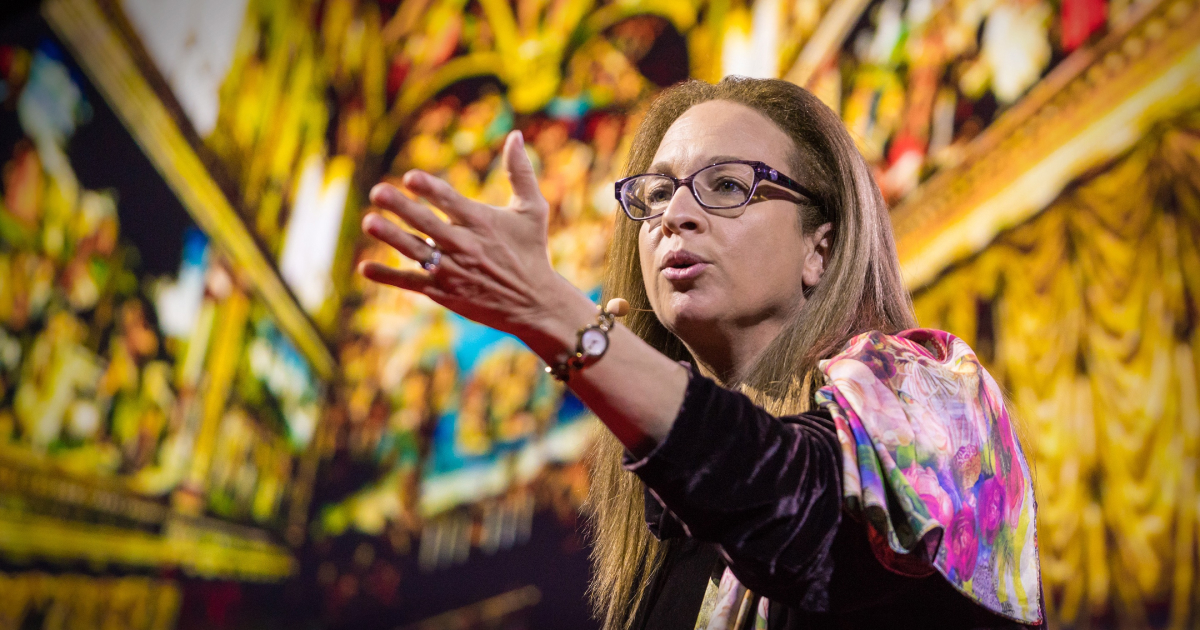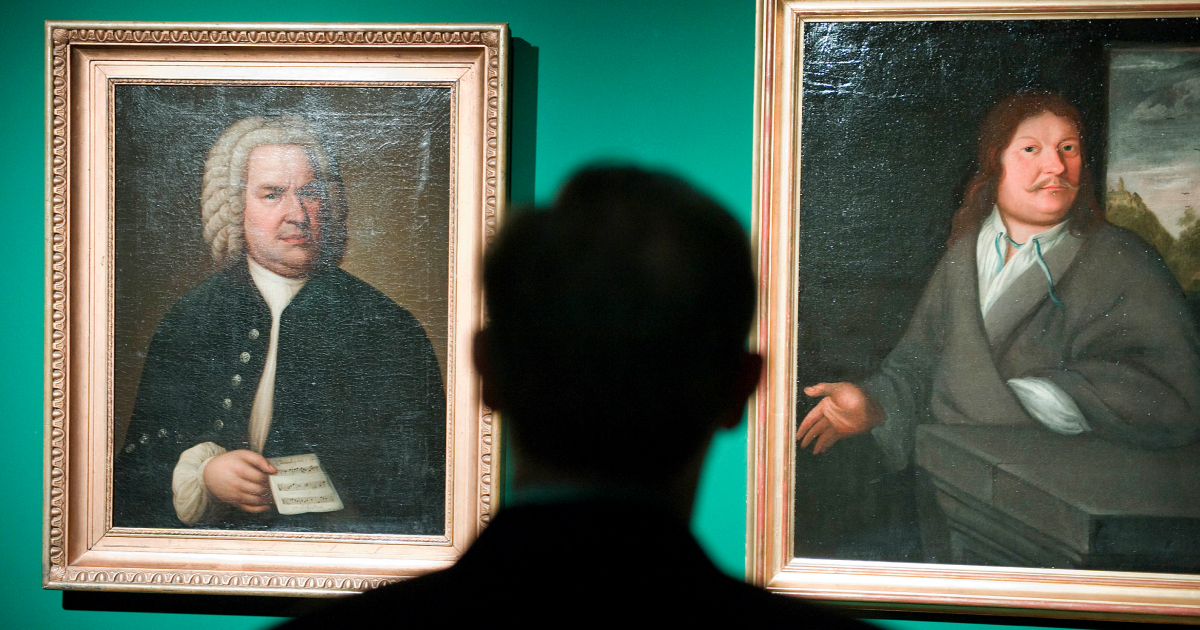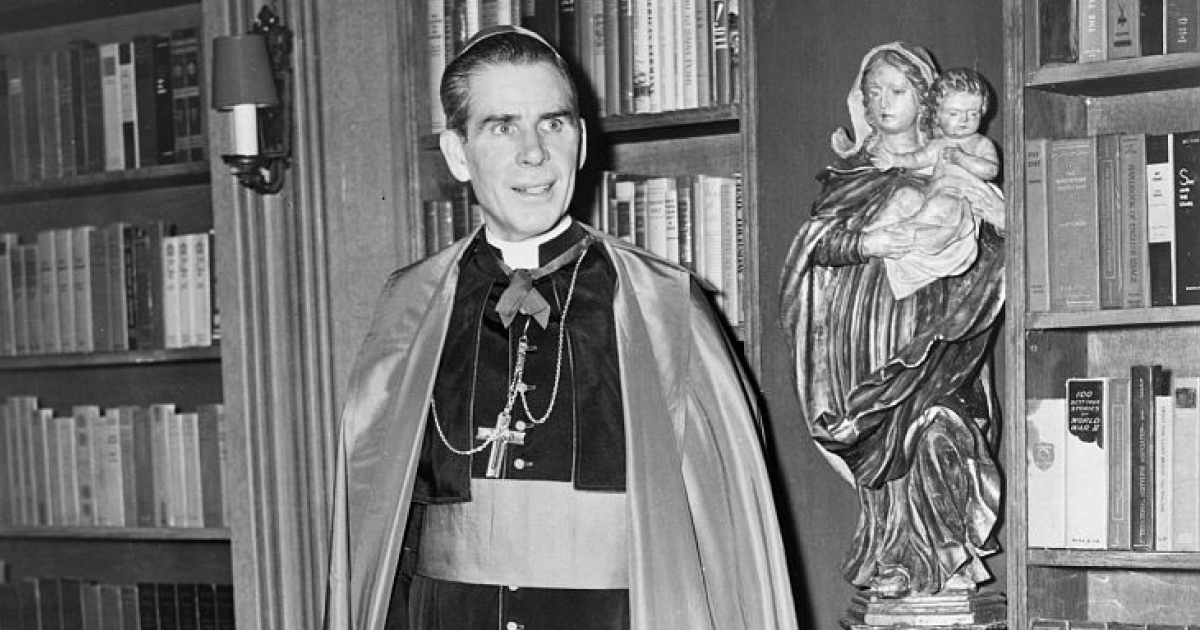The fallout from Pope Francis’ remarks to the Italian bishops rumbles on. This is in part because his words have defeated the efforts of both progressives and conservatives to understand why the Pope should have used the language he did to make the point he made.
Perhaps we are served better by reflecting on what we can know instead of what we can’t? What has become more evident in the wake of them is the merciless fury of the rainbow lobby for those who transgress.
This raises the wider question of what the Catholic Church has been dealing with as it set out from the beginnings of the Second Vatican Council to build a bridge of better mutual understanding across the chasm of modernity.
Was the project always doomed because of the unfolding nature of secularism?
Throughout the whole of his pontificate until this last week, Pope Francis has been given a platform of admiration by the media, and recognised as being much more “one of them” than any previous pontiff.
“Who am I to judge,” became his catch phrase in the public square. But to the shock of the media, is sits uneasily with the assertion that there is too much frociaggine (faggotry) in seminaries and that homosexual men should not be ordained.
Except of course for the context. How might the context help us to square a problematic circle?
It was originally simply an off-the-cuff remark to journalists on the plane. But the phrase has passed into contemporary political and cultural consciousness developing a life of its own, with such impact that the conversation that gave birth to it is often forgotten or ignored.
It was in fact a response to a scandal that had emerged following rumours about the private life of scandalously sexually active Catholic priest. The man at the centre of the scandal was Mgr Battista Ricca who had had a relationship with another man – the "intimacy" of which was "so open as to scandalise numerous bishops, priests, and laity" of Uruguay, where he served in the nunciature from 1999 to 2004.
His private and sexual life was so publicly provocative that it caused outrage, first in Uruguay and then in Rome after he moved there.
The facts had been documented by journalist Sandro Magister in L’Espresso. The details of the scandal demonstrate why the matter should have produced such notoriety.
Magister documented at the time: “The intimacy of the relations between Ricca and (his lover) Patrick Haari was so open as to scandalise numerous bishops, priests, and laity of that little South American country, not last the sisters who attended to the nunciature.
The new nuncio, Janusz Bolonek of Poland, who arrived in Montevideo at the beginning of 2000, also found that ménage intolerable, and informed the Vatican authorities about it, insisting repeatedly to Haari that he should leave. But to no use, given his connections with Ricca.
In early 2001 Ricca also got into a scrape over his reckless conduct. One day, having gone as on other occasions - in spite of the warnings he had received - to Bulevar Artigas, to a meeting place for homosexuals, he was beaten and had to call some priests to take him back to the nunciature, with his face swollen.
In August of 2001, another mishap. In the middle of the night the elevator of the nunciature got stuck and in the early morning the firemen had to come. They found trapped in the car, together with Mgr Ricca, a young man who was identified by the police authorities…”
Astonishingly, he was later promoted to a position in the Vatican, serving as secretary at meetings of the cardinals' commission on the Vatican Bank with the express approval of Pope Francis.
The relationship delivered one shocking surprise after another. Ricca’s gay lover asked for his luggage to be forwarded to the new accommodation at the Vatican following his appointment there by diplomatic post, but a problem arose.
“Once the luggage was opened to get rid of its contents - as decided by the nuncio Bolonek - a pistol was found in it, which was handed over to the Uruguayan authorities, and in addition to personal effects, an enormous quantity of condoms and pornographic material.”
After Magister had exposed the scandals in Ricca’s past, it then emerged that in order to cover up Ricca’s past behaviour and to satisfy the vetting procedure there was no reason against his being appointed, his past had been the subject of a cover up in the Vatican by what was described as the “gay lobby”.
As so often the cover up proved to be even more of a problem that the scandalous behaviour of a rampant gay priest
The question that was asked of the Pope on the plane was not just about the appointment of Mgr Ricca, but about the alleged cover up by the gay lobby.
The Pope was being asked to address the cover up in the Vatican.
And it was this that led to his reply which contained the famous or infamous “who am I to judge’ remark.
It’s worth recording exactly what he said.
“Then, you spoke about the gay lobby. So much is written about the gay lobby. I still haven’t found anyone with an identity card in the Vatican with ‘gay’ on it. They say there are some there. I believe that when you are dealing with such a person, you must distinguish between the fact of a person being gay and the fact of someone forming a lobby, because not all lobbies are good. This one is not good. If someone is gay and is searching for the Lord and has good will, then who am I to judge him? The Catechism of the Catholic Church explains this in a beautiful way, saying ... wait a moment, how does it say it ... it says: ‘no one should marginalise these people for this, they must be integrated into society’.”
The problem is not having this tendency, no, we must be brothers and sisters to one another, and there is this one and there is that one. The problem is in making a lobby of this tendency: a lobby of misers, a lobby of politicians, a lobby of masons, so many lobbies. For me, this is the greater problem. Thank you so much for asking this question. Many thanks.”
The more serious issue is that of Pope Francis declining to acknowledging there was a gay lobby when asked.
Since then the “Lavender Mafia” as they are often called have emerged as a force to be reckoned with at the highest levels of the Church. Indeed, one of the most serious shadows on this papacy is the protection of homosexual child molesters amongst the most senior players in the Vatican.
The second is that however one wanted to describe Mgr Ricca, it would be generous to say he was someone who was “gay, searching for the Lord and of good will”.
And yet, out of this double misrepresentation came a phrase that was to be picked up and circle the globe with a resonance that was to last for years; right up until last week.
The conservative blogger Mario Andinolfi gave vent to his frustration this week about the way in which this single phrase was used by the media to heighten the tension over the debates about sexuality.
He wrote: "Now marginalised in the progressive Church of Francis, I don't know how many times (I have been) attacked with very negative epithets, waving the Pope's 'Who am I to judge?' remark of July 2013 in my face.
"In all those television debates, I asked everyone to listen to the entire minute of the papal declaration, not to distort it by hearing only the 10-second snippet used in order to exploit it. I spent 10 years in the television studios being described as the 'Ratzingerian homophobic Catholic'."
Andolfini goes on to praise Pope Francis for his frankness “even if it was a ‘careless’ frankness — with the Italian bishops, in speaking negatively about the admission of homosexuals to the seminary”.
Lamenting that leftish media voices had harnessed the Pope exclusively as an icon of change, he asked: "Who knows what he will say about Francis today, not understanding that the Catholic Church is the only source of light in an Italy darkened by their ferocious conformism which now pretends to be scandalised by a frank word used by the Pope in a closed-door meeting to explain that as Catholics we embrace everyone, but we do not resign ourselves to the spread of the sin that we call by its name. Long live the Pope's inappropriate words, long live the carelessness of Francis."
Andinolfi reminds us that the gay lobby exists not just inside the Vatican, but dominates the media and Western culture as well.
He quoted Massimo Gramellini on the front page of Corriere della Sera which rakes Pope Francis over the coals, comparing him to a crude "wrestler", humiliating him by asking that Bombolo "intercede for him" from Heaven, and concludes: “It’s amazing what happens to you if you offend the rainbow lobby.
“In a moment you are transformed into fertiliser on which one can freely spit, even if for 10 years they have raised you up as an absolute point of reference. Whoever touches that bare wire electrocutes himself ... always.”
What we might want to reflect on in the wake of the turbulence that has followed the frankness of Pope Francis is the recognition that what we have taken for rational secularism capable of being negotiated with in our increasingly progressive culture may instead be a return to a darker paganism with radically and intensely opposed views to the Catholic faith.
If Pope Francis’ frank phraseology has thrown any light on the situation the church faces, it may be to demonstrate the task of converting a decaying secular culture is a more radical one than we knew.
(Getty Images)
The fallout from Pope Francis’ remarks to the Italian bishops rumbles on. This is in part because his words have defeated the efforts of both progressives and conservatives to understand why the Pope should have used the language he did to make the point he made.
Perhaps we are served better by reflecting on what we can know instead of what we can’t? What has become more evident in the wake of them is the merciless fury of the rainbow lobby for those who transgress.
This raises the wider question of what the Catholic Church has been dealing with as it set out from the beginnings of the Second Vatican Council to build a bridge of better mutual understanding across the chasm of modernity.
Was the project always doomed because of the unfolding nature of secularism?
Throughout the whole of his pontificate until this last week, Pope Francis has been given a platform of admiration by the media, and recognised as being much more “one of them” than any previous pontiff.
“Who am I to judge,” became his catch phrase in the public square. But to the shock of the media, is sits uneasily with the assertion that there is too much <em>frociaggine</em> (faggotry) in seminaries and that homosexual men should not be ordained.
Except of course for the context. How might the context help us to square a problematic circle?
It was originally simply an off-the-cuff remark to journalists on the plane. But the phrase has passed into contemporary political and cultural consciousness developing a life of its own, with such impact that the conversation that gave birth to it is often forgotten or ignored.
It was in fact a response to a scandal that had emerged following rumours about the private life of scandalously sexually active Catholic priest. The man at the centre of the scandal was Mgr Battista Ricca who had had a relationship with another man – the "intimacy" of which was "so open as to scandalise numerous bishops, priests, and laity" of Uruguay, where he served in the nunciature from 1999 to 2004.
His private and sexual life was so publicly provocative that it caused outrage, first in Uruguay and then in Rome after he moved there.
The facts had been documented by journalist Sandro Magister in <em>L’Espresso</em>. The details of the scandal demonstrate why the matter should have produced such notoriety.
Magister documented at the time: “The intimacy of the relations between Ricca and (his lover) Patrick Haari was so open as to scandalise numerous bishops, priests, and laity of that little South American country, not last the sisters who attended to the nunciature.<br><br>The new nuncio, Janusz Bolonek of Poland, who arrived in Montevideo at the beginning of 2000, also found that <em>ménage</em> intolerable, and informed the Vatican authorities about it, insisting repeatedly to Haari that he should leave. But to no use, given his connections with Ricca.<br><br>In early 2001 Ricca also got into a scrape over his reckless conduct. One day, having gone as on other occasions - in spite of the warnings he had received - to Bulevar Artigas, to a meeting place for homosexuals, he was beaten and had to call some priests to take him back to the nunciature, with his face swollen.<br><br>In August of 2001, another mishap. In the middle of the night the elevator of the nunciature got stuck and in the early morning the firemen had to come. They found trapped in the car, together with Mgr Ricca, a young man who was identified by the police authorities…”
Astonishingly, he was later promoted to a position in the Vatican, serving as secretary at meetings of the cardinals' commission on the Vatican Bank with the express approval of Pope Francis.
The relationship delivered one shocking surprise after another. Ricca’s gay lover asked for his luggage to be forwarded to the new accommodation at the Vatican following his appointment there by diplomatic post, but a problem arose.
“Once the luggage was opened to get rid of its contents - as decided by the nuncio Bolonek - a pistol was found in it, which was handed over to the Uruguayan authorities, and in addition to personal effects, an enormous quantity of condoms and pornographic material.”
After Magister had exposed the scandals in Ricca’s past, it then emerged that in order to cover up Ricca’s past behaviour and to satisfy the vetting procedure there was no reason against his being appointed,<mark style="background-color:rgba(0, 0, 0, 0)" class="has-inline-color has-black-color"> his past had been the subject of a cover up in the Vatican by what was described as the “gay lobby”. </mark>
As so often the cover up proved to be even more of a problem that the scandalous behaviour of a rampant gay priest
The question that was asked of the Pope on the plane was not just about the appointment of Mgr Ricca, but about the alleged cover up by the gay lobby.
The Pope was being asked to address the cover up in the Vatican.
And it was this that led to his reply which contained the famous or infamous “who am I to judge’ remark.
It’s worth recording exactly what he said.
<em>“Then, you spoke about the gay lobby. So much is written about the gay lobby. I still haven’t found anyone with an identity card in the Vatican with ‘gay’ on it. They say there are some there. I believe that when you are dealing with such a person, you must distinguish between the fact of a person being gay and the fact of someone forming a lobby, because not all lobbies are good. This one is not good. If someone is gay and is searching for the Lord and has good will, then who am I to judge him? The </em>Catechism of the Catholic Church<em> explains this in a beautiful way, saying ... wait a moment, how does it say it ... it says: ‘no one should marginalise these people for this, they must be integrated into society’.”</em>
The problem is not having this tendency, no, we must be brothers and sisters to one another, and there is this one and there is that one. The problem is in making a lobby of this tendency: a lobby of misers, a lobby of politicians, a lobby of masons, so many lobbies. For me, this is the greater problem. Thank you so much for asking this question. Many thanks.”
The more serious issue is that of Pope Francis declining to acknowledging there was a gay lobby when asked.
Since then the “Lavender Mafia” as they are often called have emerged as a force to be reckoned with at the highest levels of the Church. Indeed, one of the most serious shadows on this papacy is the protection of homosexual child molesters amongst the most senior players in the Vatican.
The second is that however one wanted to describe Mgr Ricca, it would be generous to say he was someone who was “gay, searching for the Lord and of good will”.
And yet, out of this double misrepresentation came a phrase that was to be picked up and circle the globe with a resonance that was to last for years; right up until last week.
The conservative blogger Mario Andinolfi gave vent to his frustration this week about the way in which this single phrase was used by the media to heighten the tension over the debates about sexuality.
He wrote: "Now marginalised in the progressive Church of Francis, I don't know how many times (I have been) attacked with very negative epithets, waving the Pope's 'Who am I to judge?' remark of July 2013 in my face.
"In all those television debates, I asked everyone to listen to the entire minute of the papal declaration, not to distort it by hearing only the 10-second snippet used in order to exploit it. I spent 10 years in the television studios [of Italy] being described as the 'Ratzingerian homophobic Catholic'."
Andolfini goes on to praise Pope Francis for his frankness “even if it was a ‘careless’ frankness — with the Italian bishops, in speaking negatively about the admission of homosexuals to the seminary”.
Lamenting that leftish media voices had harnessed the Pope exclusively as an icon of change, he asked: "Who knows what he will say about Francis today, not understanding that the Catholic Church is <em>the only source of light in an Italy darkened by their ferocious conformism</em> which now pretends to be scandalised by a frank word used by the Pope in a closed-door meeting to explain that as Catholics we embrace everyone, but <em>we do not resign ourselves to the spread of the sin that we call by its name</em>. Long live the Pope's inappropriate words, long live the carelessness of Francis."
Andinolfi reminds us that the gay lobby exists not just inside the Vatican, but dominates the media and Western culture as well.
He quoted Massimo Gramellini on the front page of [the Italian daily] <em>Corriere della Sera</em> which rakes Pope Francis over the coals, comparing him to a crude "wrestler", humiliating him by asking that Bombolo [an Italian comedian who died in 1987] "intercede for him" from Heaven, and concludes: “It’s amazing what happens to you if you offend the rainbow lobby.
“In a moment you are transformed into fertiliser on which one can freely spit, even if for 10 years they have raised you up as an absolute point of reference. Whoever touches that bare wire [that topic] electrocutes himself ... always.”
What we might want to reflect on in the wake of the turbulence that has followed the frankness of Pope Francis is the recognition that what we have taken for rational secularism capable of being negotiated with in our increasingly progressive culture may instead be a return to a darker paganism with radically and intensely opposed views to the Catholic faith.
If Pope Francis’ frank phraseology has thrown any light on the situation the church faces, it may be to demonstrate the task of converting a decaying secular culture is a more radical one than we knew.
<em>(Getty Images)</em>











.jpg)





